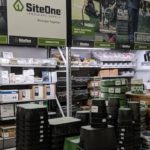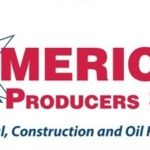Although Hurricane Harvey has passed and Hurricane Irma is weakening as it moves north, these catastrophic weather events are expected to wreak havoc on supply chains – especially pricing and deliveries – for weeks or even months, according to an Institute for Supply Management survey.
Two-thirds (67 percent) of survey respondents believe input materials pricing will be at least somewhat negatively impacted over the next three months, and more than one-fourth (27 percent) expect prices to be negatively or very negatively impacted, according to the survey, which focused on Harvey’s impact and was conducted before Irma hit the U.S.
More than half of respondents (56 percent) believe supplier deliveries will be at least somewhat negatively impacted over the next three months, with nearly one-fifth (19 percent) expecting deliveries to be negatively or very negatively impacted.
“Our hearts are with the individuals and businesses that have been affected by Hurricane Harvey. The human and corporate impact are significant,” ISM CEO Thomas Derry said. “Indeed, the results of our ISM Report On Business Survey indicate ongoing challenges for U.S. companies with pricing, supplier deliveries and certain commodities because of the storm. We are encouraged, however, by data indicating that the effect on production, new orders and employment will be relatively minimal.”
Production/business activity, new orders and inventory level will be only moderately impacted by the hurricanes, while employment is least likely to be negatively impacted by Harvey, according to survey respondents.
Other supply chain snafus are projected, including manufacturers shutting down operations and failing to meet deadlines for their products, according to a report in Supply Chain Drive. This could lead to legal battles over production goals for suppliers and customers, the report says.
The report also forecasts trucking rates to “spike nationwide, but especially in the Houston area as aid is shipped in.”
“There’s going to be heavy pressure on freight lines to keep product moving – Houston is a pretty well balanced port when it comes to volumes going in and out – so there’s going to be a heavy reliance on rail and road to move product and a heavy reliance on infrastructure,” Josh Brogan, a vice president at consulting firm A.T. Kearney, told Supply Chain Dive.
Related Posts
-
Machine Tool Supply is a distributor of cutting tools, abrasives, mold components, workholding products, MRO…
-
SiteOne Landscape Supply Inc. has acquired Hedberg Supply, the landscape supplies product division of Hedberg…
-
American Producers Supply Co., a Marietta, Ohio-based supplier of industrial, construction and oilfield supplies in…




